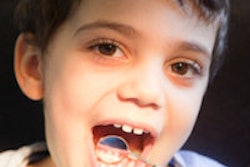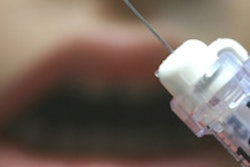Pediatric patients who receive treatment under general anesthesia have a higher rate of caries relapse compared with those patients who had treatment without general anesthesia, according to a study presented at this week's 2016 American Association of Dental Research (AADR) annual meeting in Los Angeles.
Researchers from the University of Washington retrospectively investigated the socioeconomic characteristics of these patients and their caries relapse rates. The study included children from birth to age 10 who were seen at the University of Washington Center for Pediatric Dentistry from January 2012 through April 2015. The researchers used a baseline period of six months after the first general anesthesia visit or when the first exam visit was established for participants with and without general anesthesia. The patients were followed through April 2015 or until the first relapse of caries occurred. The researchers defined a relapse as an extraction, restoration, or endodontic treatment after the baseline period.
More patients were treated without general anesthesia (n = 8,648) than those who were treated without (n = 1,633), but caries relapse rates were higher for patients who were treated under general anesthesia. The researchers also found that relapses occurred sooner for general anesthesia patients versus the patients treated without general anesthesia (0.90 ± 0.63 years versus 1.29 ± 0.66 years, p < 0.001). In addition, the general anesthesia patients had shorter follow-up times (0.95 ± 1.04 years versus 0.36 ± 0.57 years, p < 0.001).
However, no other demographic or patient characteristics had any effect, according to the study authors. Age was a factor in relapse rates for only patients treated without general anesthesia, they noted.
With higher rates of caries relapse, shorter follow-up times, and earlier relapse rates for general anesthesia participants, these patients are at a continued high risk of caries relapse after treatment under general anesthesia, the researchers concluded.
They noted, however, that because of the short follow-up period, the true caries relapse rates of general anesthesia patients remain uncertain with possible relapses occurring without follow-up.



















